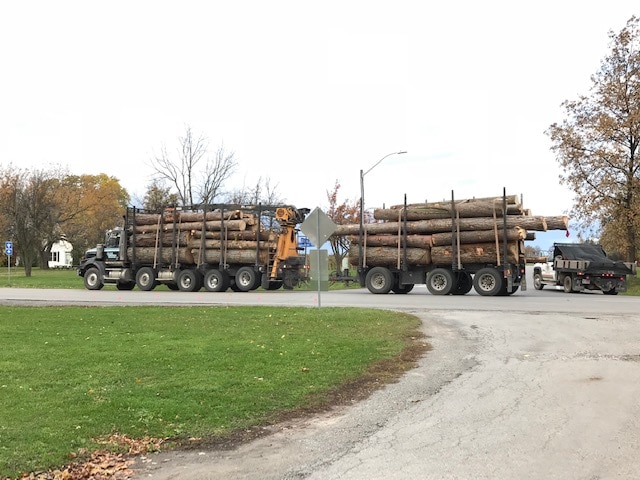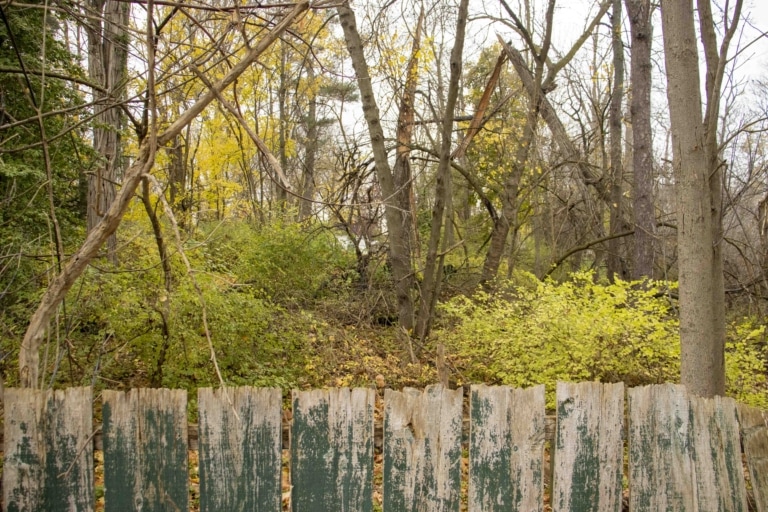Legal battle over clear-cutting on Rand property faces Charter challenge by developer
The Town of Niagara-on-the-Lake is poised to once again face off with developer Benny Marotta’s companies in court in September and October.
This time the legal battle is over the clear-cutting of trees on the Rand Estate on Nov. 6, 2018.
But the first case, set for Sept. 12 at the courthouse in Welland, is a Charter of Rights challenge by Marotta’s lawyers who are questioning the town’s right to prosecute the companies for cutting down the trees.
In an email to group followers, Save Our Rand Estate, a vocal resident group that has opposed Marotta’s plans for the Rand Estate at just about every step, said the constitutional challenge is “to the surprise of no one who has followed the Marotta legal tactics on the Rand Estate.”
Lyle Hall, a spokesperson for SORE, said the group hasn’t seen any materials filed with the court with respect to the Charter challenge, ”so we have no position on the merits of the challenge.”
“It does, however, continue a predictable and unfortunate pattern for the Marotta companies, of exploiting the legal system to the fullest possible extent rather than dealing with the merits of the case,” Hall said in an emailed response to questions from The Lake Report.
“Just look at the town’s designation of the Rand Estate under the Heritage Act in 2018,” he said.
“The Marotta group both appealed the designation to the Conservation Review Board as well as challenged the legality of the designations in Superior Court — for almost three years — then abandoned both proceedings.”
In past legal battles between Marotta and the town, SORE has had third-party status in the cases.
This time SORE members are not involved in the legal proceedings except as observers.
Marotta did not respond to attempts to reach him for comment before deadline.
In 2018, Marotta, owner of the four Rand Estate properties, said the trees were only removed from 200 John St. and that he believed he was within his legal rights to clear the land.
He said the clearing of the trees was permitted under the town’s bylaws and by the Niagara Peninsula Conservation Authority.
He said he was unsure exactly how many trees were taken down.
“We didn’t count them but whatever we feel needs to go down, we’ll take it down,” Marotta told The Lake Report at the time.
Hall said SORE believes the ideal outcome is for Marotta to be forced to restore the heritage aspects he removed from the property.
“The Heritage Act provides for restoration of any illegally destroyed/damaged heritage attributes, at the owner’s expense, in the event of a conviction under the act,” Hall said.
“It is SORE’s understanding and our expectation that the town will pursue such restoration, 100 per cent of the costs of which will be the responsibility of the Marotta companies, in the event (the town) is successful.”
The clear-cutting of the trees was “senseless environmental destruction,” Hall said.
Aside from that, he said SORE members believe Marotta intentionally cut the trees in a rush after the 2018 municipal election, before the new council came into power, headed by Lord Mayor Betty Disero — who largely ran on a position of heritage protection, with an emphasis on protecting the Rand Estate.
“What is obvious … is the Marotta group’s use of heavy machinery to deliberately clear-cut what both the town and SORE believed was protected heritage landscape. These cultural heritage attributes of the Rand Estate, including the extensive Dunnington-Grubb designed landscape design, apparently were not given so much as a second thought,” Hall said.
“These attributes were legally protected as of August 2018 when the previous council approved the notices of intent to designate Randwood under the new mayor and council. And before that council took office, Marotta commenced the clear cut.”
“Extensive expert advice” was submitted by the town and SORE for the Conservation Review Board proceedings about the nature and extent of the Dunnington-Grubb landscape features, Hall said.
As with any legal matter, a defendant is “entitled to bring whatever court challenge they wish. That doesn’t mean it has any merit,” he said.
“The Marotta challenges to the legality of the town’s heritage designation bylaws of the Rand Estate were found by the Superior Court to be completely without merit,” he added.
“Following that decision, the Marotta companies paid significant costs to both the town and SORE as a consequence.”
The trial dates for prosecution are set for Oct. 17, 18, 24 and 25.











